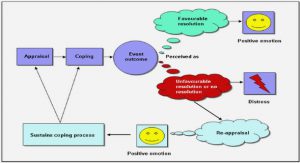Get Complete Project Material File(s) Now! »
Types of Marketing Knowledge
The previous discussion illustrates that the exploration of organisational marketing capability cannot ignore the role of knowledge, since this is a process via which resources are transformed into marketing outputs. However, limited literature exists on the nature of marketing knowledge. Therefore, the previous analysis will be applied to marketing knowledge to provide some conceptual clarity.
Organisational knowledge has been defined as most commonly being either explicit or tacit knowledge. Tacit knowledge has been further characterised as technical/procedural; cognitive/declarative and transactive. Marketing knowledge has both explicit and tacit dimensions. The prevalence of templates and marketing ‘ways’ (i. e. blueprints for how marketing should be conducted) in the practitioner environment attest to the popularity of the explicit element. However, as suggested in the discussion on organisational capability, it is the tacit dimension of marketing knowledge that has the most potential to contribute to firm competitiveness. Therefore, the rest of this section will focus on this aspect only.
The technical/procedural aspects of tacit marketing knowledge are marketing skills and crafts – one example would be the development of a brand proposition. This involves the process of identifying the unique bundle of benefits that a brand can offer and matching it to the needs of the specified target audience.
Cognitive/declarative marketing knowledge refers to how marketers make sense of situations and interpret events, in other words, the ‘mental models’ that marketing individuals hold in their heads. This would include the knowledge that is required to make sense of customer information, transform it into insights, create value propositions, and the application of appropriate styles of communication that need to appeal to different target audiences. It may also include a broader conceptualisation or mental model regarding the role of brands and marketing in the life of the consumer. For example, on the one hand there has been criticism of marketing as highly exploitative and ‘dishonest’ (Kitchen et al., 2016), while on the other hand, there is a strong practioner focus on understanding and communicating the higher order purpose of brands because it is argued that these are able to provide meaning and a sense of belonging for consumers.
Transactive marketing knowledge involves “know-who” within the organisation: a resource gaining importance as demands increase for marketing to integrate with other organisational functions such as IT and to align and collaborate across all levels. The ability to use transactive knowledge to secure support for increasingly scarce marketing resources is also important in the development of organisational marketing capability.
CHAPTER 1: INTRODUCTION TO THE RESEARCH
1.1 INTRODUCTION
1.2 BACKGROUND
1.3 STATEMENT OF THE RESEARCH PROBLEM
1.4 CONTRIBUTIONS OF THE STUDY
1.5 LIMITATIONS
1.6 ASSUMPTIONS .
1.7 DEFINITION OF KEY TERMINOLOGY
1.8 STRUCTURE OF THE THESIS .
CHAPTER 2: LITERATURE REVIEW
2.1 INTRODUCTION
2.2 DEVELOPMENT OF THE FIELD OF CAPABILITY
2.2.1 ORGANISATIONAL CAPABILITY
2.2.2 MARKETING CAPABILITY
2.3 TYPES OF CAPABLITIES
2.3.1 TYPES OF ORGANISATIONAL CAPABLITY
2.3.2 TYPES OF MARKETING CAPABILITY
2.4 PROPOSED FRAMEWORK OF TYPES OF MARKETING CAPABILITY .
2.5 HOW ORGANISATIONAL CAPABILITIES ARE DEVELOPED
2.5.1 INPUTS TO CAPABILITY DEVELOPMENT: RESOURCES.
2.5.2 THE DEVELOPMENT OF CAPABILITIES THROUGH KNOWLEDGE
INTEGRATION
2.5.3 SUMMARY OF THE LITERATURE REVIEW
2.6 RESEARCH QUESTIONS
CHAPTER 3: RESEARCH DESIGN AND METHODOLOGY
3.1 INTRODUCTION
3.2 RESEARCH DESIGN: QUALITATIVE VIA MULTIPLE EMBEDDED CASE
STUDIES
3.3 CASE SELECTION
3.4 METHODS OF DATA COLLECTION AND DATA COLLECTION
INSTRUMENTS
3.5 METHODS OF DATA ANALYSIS
3.6 ETHICAL CONSIDERATIONS AND QUALITY
3.7 SUMMARY OF RESEARCH DESIGN AND METHODOLOGY..
CHAPTER 4: CASE ANALYSIS .
4.1 INTRODUCTION
4.2 CASE OVERVIEWS
4.3 TYPES OF MARKETING CAPABILITY
4. 4 MARKETING RESOURCE INPUTS
CHAPTER 5 DISCUSSION OF FINDINGS
5. 1 INTRODUCTION .
5. 2 ALIGNMENT BETWEEN THE PROPOSED MARKETING CAPABILITY
FRAMEWORK AND THE PRACTICE OF MARKETING
5.3 THE NATURE OF MARKETING RESOURCES
5.4 THE NATURE OF MARKETING KNOWLEDGE RESOURCES .
5.5 MECHANISMS OF MARKETING KNOWLEDGE INTEGRATION
5. 6 THE TRANSFORMATION OF KNOWLEDGE RESOURCE INPUTS INTO
MARKETING CAPABILITY AND SUB-CAPABILITIES.
5.7 SUMMARY OF DISCUSSION.
CHAPTER 6: CONCLUSIONS AND RECOMMENDATIONS
REFERENCES
APPENDICES
APPENDIX A: DETAILED CASE CONTEXTS
APPENDIX B: DETAILED WITHIN CASE ANALYSIS
APPENDIX C: DATA COLLECTION INSTRUMENTS
APPENDIX D: RESPONDENT INFORMED CONSENT FORM FOR INTERVIEW
APPENDIX E: ORGANISATIONAL PERMISSION




